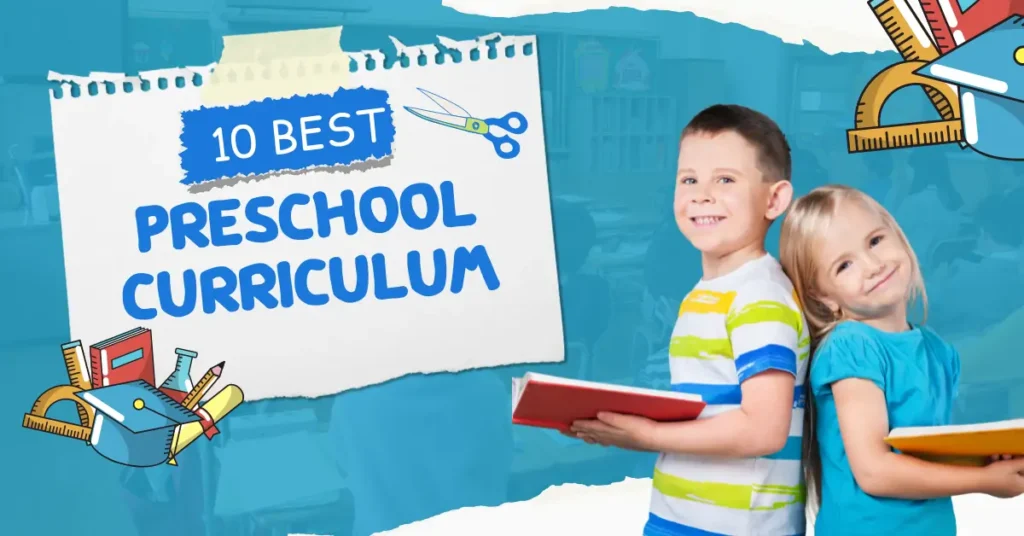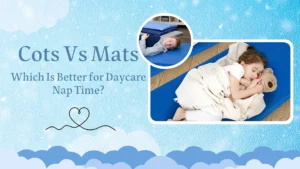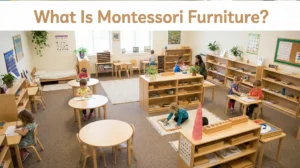Are you a parent or teacher looking for the best preschool programs to support your child’s learning and development? We’ve curated a list of the 10 best preschool programs for home and school environments.
The preschool curriculum is a comprehensive framework for stimulating and supporting the early development of children ages three to five. This blueprint for primary education combines various elements of play, structured activities, early literacy, numeracy, and social skills to create holistic experiences that promote cognitive, physical, social, and emotional growth. Understanding what constitutes a preschool curriculum and how it is implemented can help parents and educators ensure that children get a balanced and enriching start on their educational journey.
From play-based and project-based learning to Montessori and Reggio Emilia, we incorporate a variety of approaches, and each program has its own unique features, benefits, and resources to ensure you find the best fit for your child or classroom. With our detailed descriptions and the pros and cons of each program, you can make an informed decision that fits your child’s developmental stage and educational goals. Create a successful educational future for your child.
Benefits of Using a Preschool Curriculum
Choosing a preschool curriculum is one of the most important decisions a school director or early childhood educator can make. A well-structured curriculum provides more than just daily lesson plans—it offers a developmental roadmap that supports every area of a child’s growth: cognitive, emotional, physical, and social.
One of the key benefits of using a preschool curriculum is consistency. Young children thrive in environments where routines are predictable and activities have purpose. A quality curriculum ensures that daily learning is intentional, not random. It introduces children to fundamental concepts such as shapes, colors, numbers, letters, and patterns through age-appropriate methods. Whether it’s through music, art, hands-on play, or storytelling, every activity is linked to a clear learning outcome.
Another advantage is developmental alignment. High-quality preschool curriculum are designed with research-backed milestones in mind. This helps educators track progress and tailor instruction to each child’s needs. It also ensures that children are developing critical skills—like fine motor coordination, expressive language, and problem-solving abilities—at the right pace.
Additionally, a structured curriculum supports teachers by reducing preparation time and offering clear guidelines. This gives educators more time to focus on meaningful interactions and observation, instead of constantly reinventing lessons. It also helps parents understand their children’s learning, creating a bridge between school and home.
Most importantly, using a preschool curriculum creates a solid foundation for future learning. Children who attend programs with structured, well-implemented curriculum are more likely to be socially confident, academically prepared, and emotionally resilient when entering primary school.
What’s Covered in a Preschool Curriculum?
The comprehensive preschool curriculum encompasses academic, social, and motor skills to develop a well-rounded readiness for future education. Each component supports children’s growth in different dimensions of learning.
Academic Skills

1. Early Literacy
Early literacy is the foundation of a child’s education and becomes an important part of any preschool curriculum. It fosters a love of stories and expands vocabulary and understanding of basic grammar. Effective early literacy programs contain various materials including picture books, alphabet games, and interactive storytelling to help children master the nuances of language through play and interaction.
Programs that excel in promoting early literacy often use themed lessons that integrate characters and narratives children love, making learning seamless and fun.
2. Beginning Math Skills
A quality preschool curriculum should introduce basic concepts in a fun, engaging way for beginning math skills. This involves counting, understanding numbers, simple addition and subtraction, recognizing patterns, and sorting objects. The best preschool curriculum uses practical activities like counting physical objects, playing number-based games, and using digital apps designed for preschoolers, which make abstract concepts more tangible.
3. Hands-On Science
Hands-on science activities stimulate children’s curiosity about the natural world. A preschool curriculum that excels in this area will include activities that allow children to explore basic scientific concepts through sensory experiences. This could be growing plants, mixing colors, or doing simple experiments like floating and sinking tests with various objects.
These activities encourage children to ask questions, predict outcomes, observe changes, and discuss their findings, developing critical thinking and reasoning skills.
Social Skills
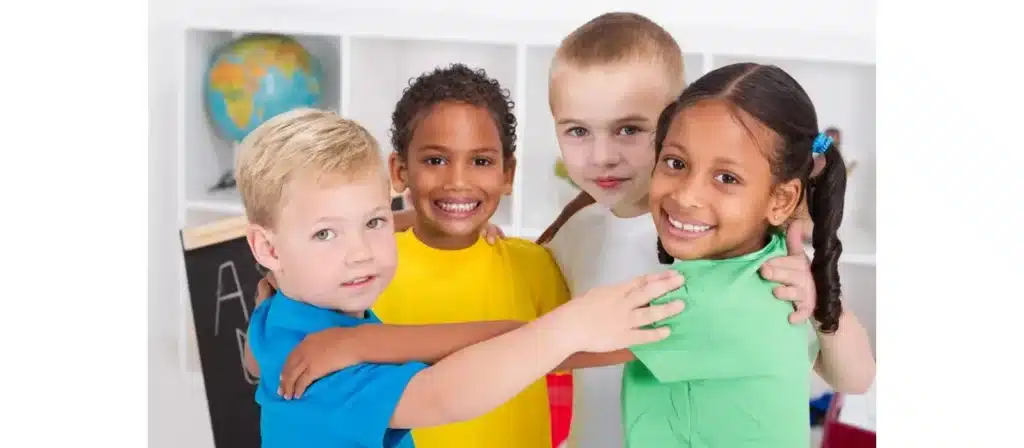
1. Social-Emotional Learning
Social-emotional learning (SEL) is integral to early childhood education, focusing on helping children manage emotions, set and achieve positive goals, feel and show empathy for others, establish and maintain positive relationships, and make responsible decisions. Effective SEL in preschool curriculum involves structured activities like storytime discussions about character feelings, group activities that require teamwork, and guided play to practice negotiation and empathy.
2. Communication Skills
Communication is a cornerstone of early childhood development. A quality preschool curriculum emphasizes the development of both verbal and non-verbal communication. Children enhance their language skills through interactive storytelling, songs, and rhymes while learning to listen and understand. Role-play and collaborative projects further encourage expressive skills and the ability to understand and respond to others effectively.
3. Sharing
Sharing and cooperation are taught through group activities that necessitate turn-taking, sharing resources, and working together to achieve common goals. Activities might include group puzzles, shared art projects, or team-based games. These experiences help children understand the value of working with others and being fair and considerate.
By integrating these practices into daily learning, children develop a sense of community and learn the importance of helping and supporting their peers.
4. Classroom Readiness
Classroom readiness involves preparing children with the skills they need to transition into a more structured school environment. This includes following directions, completing basic tasks completion, sitting still during lesson time, and participating in group activities. A well-rounded preschool curriculum will use a variety of activities to teach these skills, such as structured circle times, a series of short lessons, and sequences of activities that gradually build a child’s ability to focus and engage.
Effective classroom readiness programs ease the transition into kindergarten, reducing anxiety and increasing the likelihood of early academic success. They help children understand what will be expected of them in school and equip them with the confidence to navigate new routines and expectations.
Motor Skills

1. Physical Education
Physical education in preschool is crucial for developing gross motor skills, which include running, jumping, throwing, and climbing. A robust preschool curriculum uses daily physical activities to help children enhance their body awareness, balance, and coordination. These activities are fun and engaging, encouraging children to participate actively and enjoy physical exercise.
Such programs might include obstacle courses, dance routines, and basic sports that teach physical skills, teamwork, and personal discipline.
2. Arts and Crafts
Arts and crafts are integral to developing fine motor skills in young children. These activities require children to use their hands in specific ways, such as cutting with scissors, drawing shapes and gluing pieces together to make Christmas crafts. In addition to motor skills, arts and crafts provide a platform for self-expression and creativity, allowing children to explore different materials and media.
10 Best Preschool Curriculums
Choosing the right preschool curriculum can feel overwhelming, especially with so many available options. As an early childhood education provider, I’ve worked with kindergartens across North America, Europe, and Australia, and I’ve seen firsthand how the right curriculum can shape a child’s love for learning, support their emotional development, and prepare them for a lifetime of success.
In this article, I’ll walk you through 10 of the most trusted and effective preschool curriculum used worldwide. Each one is unique in its approach — some emphasize play, others follow structured academics, and some blend with moral and character development. Whether you’re a kindergarten director, school founder, or educator, you’ll find insights on implementing each curriculum, what materials you’ll need, and most importantly, how each program benefits the children in your care.
1. Before Five in a Row
Implementation & Preparation:
“Before Five in a Row” is an early learning curriculum designed for children aged 2 to 4 years. It is built around the concept of reading one storybook multiple times over a week and integrating learning experiences based on that book. To implement this curriculum, teachers or parents should prepare a collection of picture books listed in the program. Each week, a new book is introduced, and a variety of activities — such as storytelling, art, music, sensory play, and nature exploration — are designed around the story’s themes.
Before starting the program, educators need to set up a quiet reading space, gather basic craft supplies (markers, construction paper, glue, scissors), and create a weekly schedule that allocates time for reading and related activities. Storybooks like “Goodnight Moon” or “The Carrot Seed” are not only read aloud but also explored through imaginative play, questions, and hands-on projects. Planning ahead is crucial to align the learning objectives with the story’s message.
Benefits for Children:
This curriculum deeply fosters a love of reading and enhances listening comprehension. By revisiting the same story throughout the week, children build vocabulary, narrative understanding, and emotional connections with the characters. The hands-on activities engage multiple senses, making learning enjoyable and memorable. Children also develop fine motor skills, critical thinking, and early literacy through drawing, sequencing events, and expressing themselves verbally. Most importantly, it strengthens the emotional bond between teacher or parent and child, laying a solid foundation for future academic success.
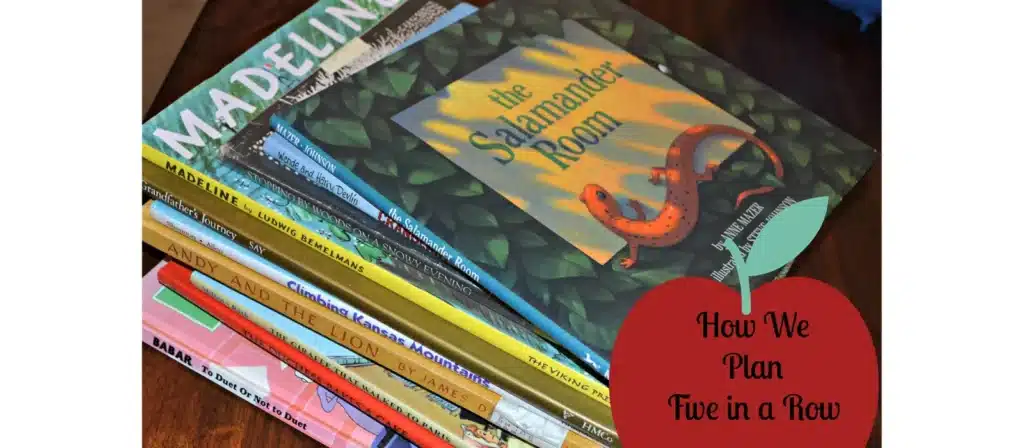
2. Positive Action Pre-K Kits
Implementation & Preparation:
The Positive Action Pre-K Curriculum is designed to teach children the fundamentals of positive behavior, emotional awareness, and social skills. Unlike traditional academic curricula, this one emphasizes personal development and behavior management from a young age. Teachers will need to familiarize themselves with the kit’s components, including story cards, puppets, songs, posters, and themed activities that illustrate core character traits like kindness, honesty, and responsibility.
To implement it effectively, schedule regular “character time” in your daily or weekly plan — ideally 15 to 30 minutes a day. Set up a classroom display board that tracks the positive behaviors learned. Teachers may use role-playing or puppet shows to present everyday scenarios and guide children in making thoughtful decisions. Prepare a routine where children are encouraged to share personal experiences, practice gratitude, and use “feeling words” to express themselves.
Benefits for Children:
This curriculum nurtures emotional intelligence, which is just as critical as cognitive development in early childhood. By participating in structured discussions and engaging stories, children learn to recognize emotions, handle frustration, build empathy, and resolve conflicts. It also creates a safe and respectful classroom culture where children understand their self-worth and how their actions impact others. These life skills stay with them far beyond preschool, equipping them with resilience and confidence in group settings — essential for success in both academic and personal life.
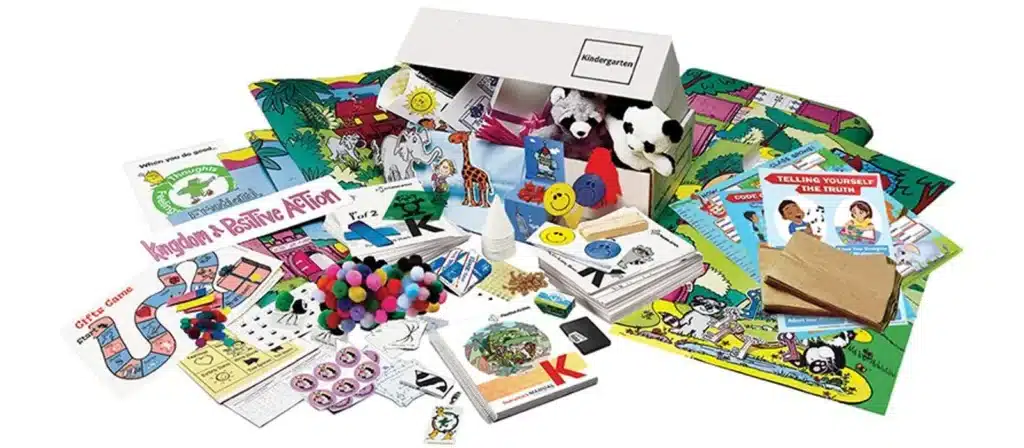
3. Horizons
Implementation & Preparation:
Horizons Preschool is a Bible-based, academically rich curriculum designed for 3- to 5-year-olds. It features colorful, engaging workbooks, hands-on activities, and comprehensive lesson plans that cover language, phonics, math, science, social studies, and Bible lessons. To prepare, educators should organize materials by week, print or distribute the workbooks, and set aside daily slots for each subject area. A consistent classroom routine is essential for this curriculum since it has structured content progression.
Teaching with Horizons involves balancing workbook instruction with interactive games, movement, crafts, and music. Teachers should prepare flashcards, puzzles, and number manipulatives to reinforce learning. Each day includes teacher-led discussions, guided workbook tasks, and extension activities. It’s important to review lessons beforehand to adapt to students’ individual pace, and to incorporate a blend of academic, spiritual, and motor skill development.
Benefits for Children:
Children benefit immensely from Horizons’ balanced approach — combining academic rigor with spiritual values and physical development. The structured format helps build concentration and academic readiness. Phonics-based reading, number sense, and handwriting readiness are taught in fun, age-appropriate ways. The inclusion of Bible stories and moral lessons enhances character education. It prepares children not only for kindergarten but also helps shape compassionate, confident learners who are spiritually grounded.

4. Oak Meadow
Implementation & Preparation:
Oak Meadow offers a gentle, nature-based curriculum influenced by Waldorf education principles. It emphasizes rhythm, imagination, and outdoor exploration over formal academics. Educators begin by creating a calm, inviting space with natural elements—think wooden furniture, plants, fabric canopies, and handmade toys. Each week centers around stories, songs, seasonal crafts, and nature walks.
This curriculum requires flexible planning that follows the child’s pace. Prepare simple materials such as felt, yarn, beeswax, and nature treasures like leaves or stones. Create a seasonal nature table in the classroom and schedule outdoor play and exploration daily. Oak Meadow encourages storytelling, artistic expression, baking, gardening, and music — integrating life experiences into learning. There’s no pressure to “achieve” but rather to experience and grow.
Benefits for Children:
Oak Meadow nurtures a child’s imagination, emotional well-being, and connection to nature. Its emphasis on daily rhythm fosters a sense of security and balance. Children learn to observe their environment, express themselves creatively, and develop strong fine motor skills through crafts and domestic tasks. This curriculum is especially beneficial for highly sensitive or imaginative children and lays a meaningful foundation for lifelong learning and environmental stewardship.
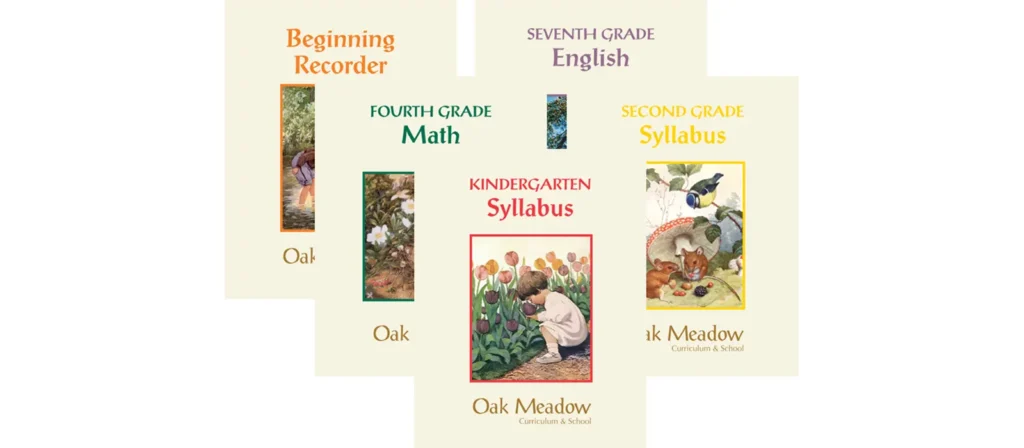
5. Time4Learning
Implementation & Preparation:
Time4Learning is a comprehensive online curriculum designed for both homeschoolers and supplementary preschool learning. It uses a digital platform with interactive lessons in phonics, math, science, and social studies. To begin, educators or parents must register students on the platform and set up user profiles. You’ll need reliable internet access, computers or tablets, and headphones for each child to ensure focused learning.
The key to successful implementation is consistency and supervision. Allocate specific hours each day for screen-based lessons and supplement with offline activities. The platform allows children to progress at their own pace, which is excellent for individualized instruction. Teachers or parents can use the dashboard to track progress, identify areas that need reinforcement, and customize lesson plans accordingly. To avoid over-reliance on screens, you can extend lessons into real-world tasks—like counting objects for math or storytelling to reinforce reading skills.
Benefits for Children:
Time4Learning offers a personalized, engaging, and interactive learning experience. Its gamified structure keeps children motivated, while real-time feedback helps reinforce learning immediately. Children develop foundational skills in literacy and numeracy while also becoming familiar with digital tools—a valuable advantage in today’s tech-driven world. It’s particularly effective for children who enjoy visual learning and self-paced study. The flexibility also supports children with learning differences or those needing extra practice in certain areas.

6. Winter Promise
Implementation & Preparation:
Winter Promise blends Charlotte Mason, unit studies, and classical learning philosophies. It provides literature-rich, thematic curriculum options, including packages for preschool-aged children. Each theme, such as “Animals Around the World” or “Everyday Explorers,” comes with a reading list, activity suggestions, worksheets, and project ideas. Teachers or parents must first choose a theme and prepare by ordering the necessary books and printing out any templates or journaling pages.
To implement, schedule each week around reading, discussion, and related projects. Unlike rigid curriculums, Winter Promise allows freedom to adapt the pace and style of learning. Organize group discussions, role-playing games, nature outings, and journaling to deepen understanding. Parents or teachers should take on the role of a guide, facilitating exploration rather than delivering lectures. A large part of the learning happens through dialogue and discovery.
Benefits for Children:
Winter Promise immerses children in meaningful, cross-disciplinary learning. It strengthens critical thinking through rich literature and thematic exploration. Children not only learn academic skills but also develop cultural awareness, emotional intelligence, and a love of lifelong learning. It’s particularly suited for curious children who enjoy stories, hands-on projects, and open-ended exploration. Its flexibility ensures every child’s learning style is respected, making it a good fit for mixed-ability classrooms or homeschools.

7. Mother Goose Time
Implementation & Preparation:
Mother Goose Time is a professionally designed, all-in-one curriculum for children aged 2.5 to 5. It comes with monthly thematic kits that include everything teachers need — lesson plans, manipulatives, art supplies, music, storybooks, and parent engagement materials. To prepare, teachers should review the monthly calendar, organize materials by day, and decorate the classroom to reflect the monthly theme (e.g., “Community Helpers,” “Under the Sea,” etc.).
Implementation is smooth with daily circle time, song and story sessions, guided crafts, sensory exploration, and structured learning moments. Teachers can easily follow the step-by-step guides provided for each activity. One of the best features is its built-in assessment and observation tools, which help track developmental progress. The curriculum integrates early literacy, math, science, motor skills, and socio-emotional learning into each day’s structure.
Benefits for Children:
Mother Goose Time provides a consistent, multi-sensory, and joyful preschool experience. Children benefit from routine and thematic continuity, which help build confidence and curiosity. Activities are intentionally designed to support every developmental domain. The daily music and movement time promote physical health, while storytelling and hands-on materials enhance cognitive and language development. Children in Mother Goose Time classrooms often show strong social skills and academic readiness for kindergarten.
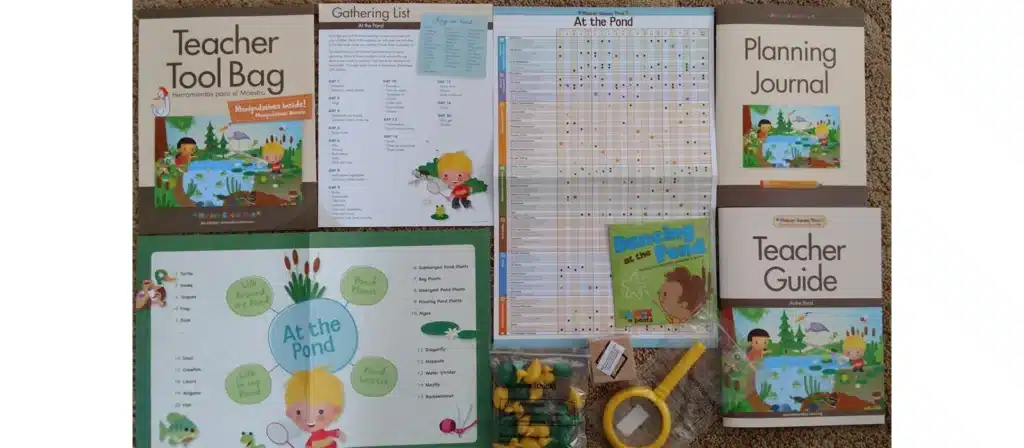
8. My Father’s World Preschool Curriculum
Implementation & Preparation:
My Father’s World combines Charlotte Mason’s gentle approach with biblical foundations and hands-on activities. The preschool package is designed around the alphabet and introduces one letter each week alongside corresponding biblical concepts, nature themes, and creative projects. To implement it effectively, you’ll need letter cards, nature walk journals, classic picture books, and simple art materials.
The weekly structure includes a daily routine of reading a Bible verse, practicing the letter sound, engaging in related crafts or games, and observing nature. Parents or teachers are encouraged to go slow, focusing on nurturing the child’s heart while guiding early academics. It’s a good idea to schedule plenty of free play and nature exploration to reinforce the curriculum’s values.
Benefits for Children:
This curriculum supports moral and spiritual development alongside academic readiness. It nurtures a sense of purpose, kindness, and awareness of God’s creation in everyday life. Activities like planting seeds, observing animals, or making alphabet-themed crafts help children retain information through action and reflection. The slow and intentional pace is ideal for families or schools seeking meaningful early childhood education that touches the whole child — mind, body, and spirit.
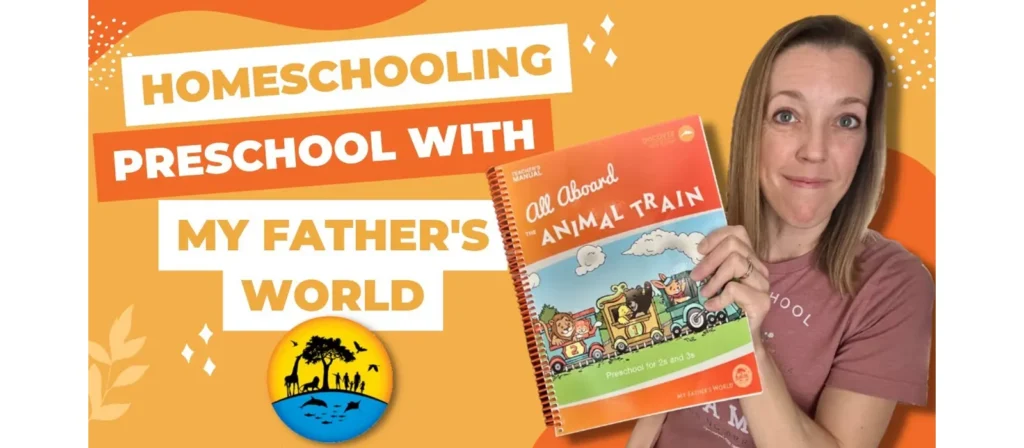
9. A Year of Playing Skillfully
Implementation & Preparation:
Developed by early childhood experts, “A Year of Playing Skillfully” is a play-based curriculum grounded in brain research and child development theory. It includes monthly themes like “Water and Weather” or “Habitats and Homes,” each with activities designed to nurture language, math, science, music, and motor skills. Preparation involves setting up learning centers (dramatic play, blocks, sensory bins, etc.) and collecting materials like natural items, art supplies, and loose parts.
Implementation is fluid and responsive to children’s interests. Teachers observe how children engage with materials, then extend learning by asking open-ended questions, offering new challenges, or linking play to broader concepts. Each activity can be adapted to suit group or individual learning. Reflection and documentation are important components, so teachers should photograph work, collect samples, and record observations.
Benefits for Children:
This curriculum emphasizes joy, creativity, and curiosity. Children are free to explore and construct their own knowledge through meaningful play. The model builds intrinsic motivation, emotional regulation, and executive function — all essential for later academic success. Because it’s grounded in developmental science, it meets children where they are, helping them grow naturally rather than pushing them through milestones. It’s ideal for programs that value whole-child development over traditional academics.
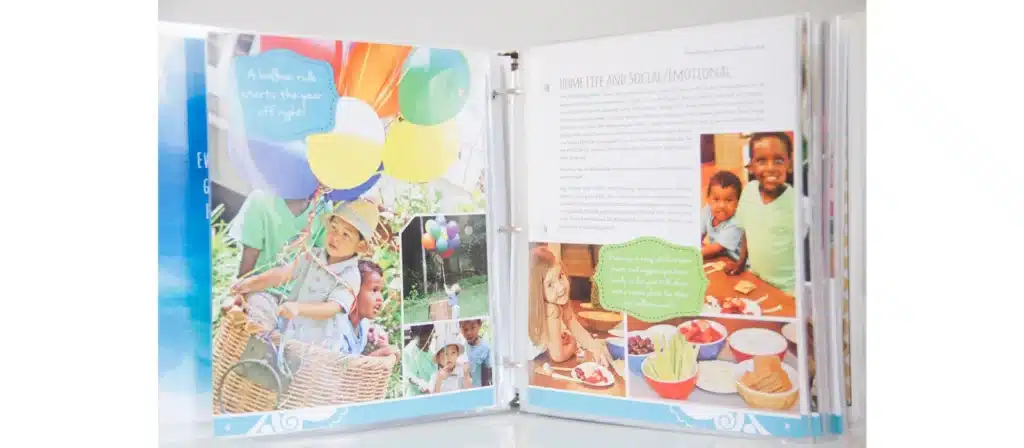
10. BookShark
Implementation & Preparation:
BookShark offers a literature-based curriculum rich in storytelling, global awareness, and thematic learning. For preschoolers, the focus is on reading aloud high-quality children’s books and discussing ideas through conversation and hands-on activities. To get started, collect the curated books provided in the BookShark package and read through the weekly instructor’s guide. You’ll also need simple art and science materials to accompany story-based explorations.
Each day, read one or two books aloud, followed by a craft, science experiment, or cooking activity that relates to the theme. Ask open-ended questions, model deep thinking, and encourage children to make connections. BookShark is easily customizable, so educators can expand or adapt stories based on the children’s response. The format allows for family-style or multi-age learning in home or school settings.
Benefits for Children:
BookShark cultivates a strong foundation in literacy and critical thinking. Repeated exposure to literature boosts vocabulary, comprehension, and imagination. The thematic connections allow for deep dives into topics like animals, cultures, seasons, and feelings. BookShark helps children become engaged listeners and expressive communicators, skills that are key to lifelong learning. It’s especially beneficial for children who thrive on stories and discussions over worksheet-driven instruction.
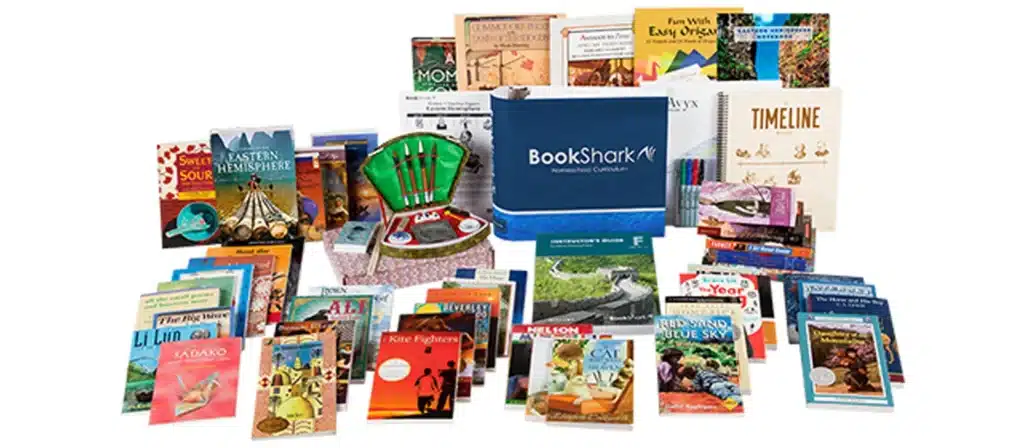
How to Plan Curriculum for Preschool?
Planning a preschool curriculum involves understanding young children’s developmental stages and integrating educational goals that cater to their growth. The process begins with defining explicit literacy, numeracy, social-emotional skills, and physical development objectives. Effective curriculum planning also considers the interests and abilities of the children to ensure that learning remains engaging and relevant.
It is crucial to incorporate various activities that foster different learning styles. These include interactive play, storytelling, arts and crafts, and hands-on experiments. Additionally, the curriculum should allow flexibility to adjust to individual learning paces and incorporate spontaneous learning opportunities that may arise during the day.
Feedback from educators and continuous assessment of the children’s progress is essential for regular curriculum refinement. This ensures that the learning experiences remain effective and meet the educational needs of all students.
Engaging parents in the learning process through regular updates and involving them in activities at home can reinforce the curriculum themes and enhance the children’s learning experience.
FAQs
1. How do I choose the right preschool curriculum?
When choosing a preschool curriculum, consider your teaching philosophy, classroom size, and student needs. Look for programs that offer clear guidance, hands-on learning, flexibility, and alignment with developmental milestones. Also, evaluate whether it focuses on play-based, academic, or blended approaches based on your educational goals.
2. Can I use a preschool curriculum at home?
Yes, many preschool curriculums are designed for both classroom and home use. Homeschool parents can benefit from structured lesson plans, activity ideas, and progress tracking tools. Programs like Time4Learning, Before Five in a Row, and Oak Meadow are particularly well-suited for home-based early education.
3. What subjects are included in a preschool curriculum?
Most preschool curriculums cover early literacy, numeracy, science exploration, fine and gross motor development, social-emotional learning, and creative arts. Some also include music, cultural studies, and character education. The goal is to create a well-rounded foundation for each child’s holistic development.
4. How does a preschool curriculum support child development?
A preschool curriculum provides structured opportunities for children to build essential life skills—like communication, cooperation, self-regulation, and curiosity. By engaging in planned activities and routines, children gain confidence, develop critical thinking, and form positive relationships, setting the stage for future academic and personal success.
5. At what age should a child start a preschool curriculum?
Most children begin preschool around age 3, but some curriculums start as early as 2 years old. The best age depends on the child’s developmental readiness and your goals—whether academic preparation, socialization, or general early childhood enrichment. A good preschool curriculum will adapt to different maturity levels and learning styles.
Conclusion
Choosing the right preschool curriculum is more than just selecting a teaching plan—it’s about laying the foundation for how a child learns, explores, and grows. Each of the ten curriculum we explored offers unique strengths, whether you value structure, creativity, faith-based learning, or play-centered development. By understanding the goals and benefits of each program, you can make an informed decision that aligns with your educational philosophy and meets the real needs of your students. A great preschool experience begins with the right curriculum that inspires curiosity, builds confidence, and nurtures every aspect of early childhood development.

